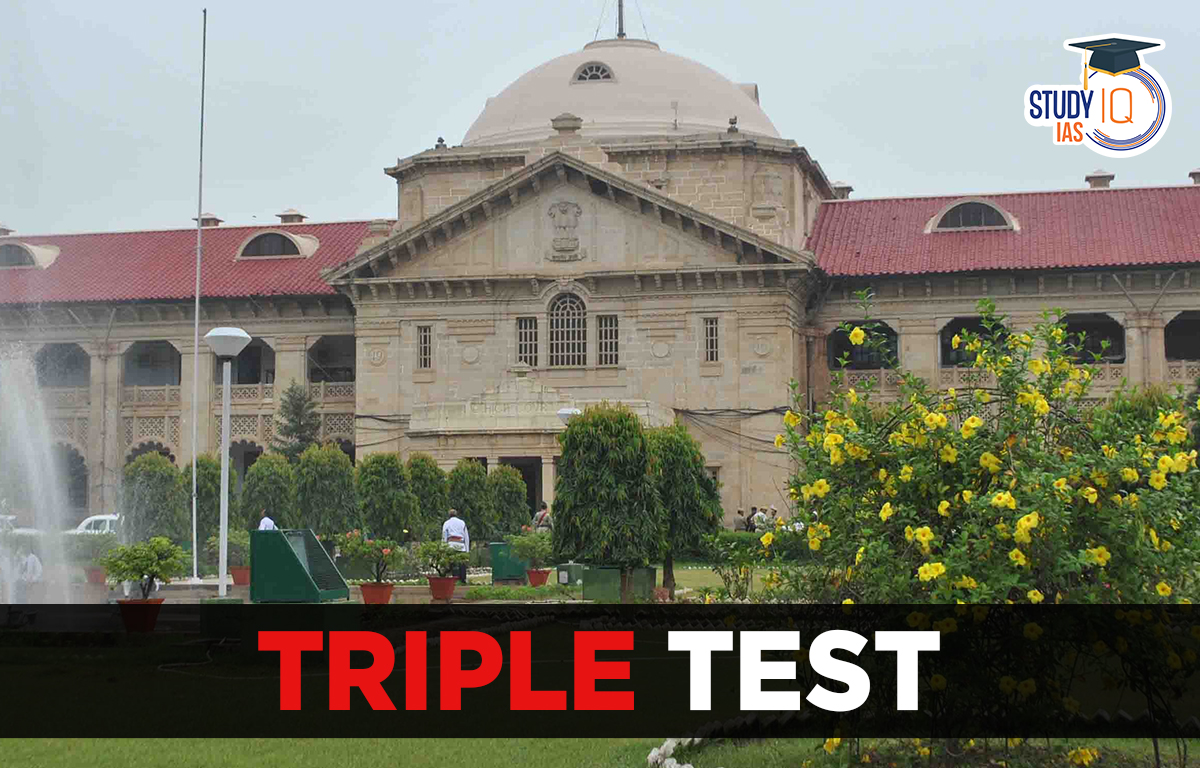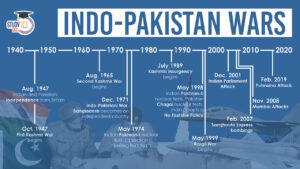Table of Contents
Background of Triple Test
- Arrangement for reservation of backward classes in local bodies was made in the UP Municipalities Act, 1916 in 1994.
- Urban Development Department of the UP government had on April 7, 2017 issued orders to conduct a rapid survey for determining the population of OBCs.
- Based on such a rapid survey in each constituency of a municipality, seats were reserved in proportion to the population of the backward class of citizens in the constituency/ward concerned.
Judicial Judgements
- Recently, Allahabad High Court ordered the Uttar Pradesh government to hold urban local body elections without reservation for Other Backward Classes (OBCs) because the ‘triple test’ requirement for the quota had not been fulfilled.
- Court noted that granting reservation on the basis of population misses a very crucial factor for determination of backwardness, and that factor is political representation of the class or group concerned.
- It said that such an exercise cannot be confined to counting of heads alone, as is being done through the rapid survey.
- Dedicated commission must ascertain underrepresentation in municipal bodies (if any) and its extent, and reserve seats in accordance with this.
- Supreme Court in the K Krishna Murthy case observed that the nature of disadvantages which restrict access to education and employment cannot be readily equated with disadvantages in the realm of political representation.
- Nature of reservation provided under Article 243-D and under Article 15(4) and 16(4): Supreme Court observed that there is an inherent difference between the nature of benefits that accrue from access to education and employment on one hand and political representation at the grassroots level on the other hand.
- Thus, backwardness in the social and economic sense does not necessarily imply political backwardness.
About Triple Test
- Supreme Court gave the triple-test formula to create OBC reservation in local body elections in the judgement of Vikas Kishanrao Gawali Vs. State of Maharashtra (2021). The three tests laid down by the Supreme Court are:
- To set up a dedicated Commission to conduct contemporaneous rigorous empirical inquiry into the nature and implications of the backwardness qua local bodies, within the state;
- To specify the proportion of reservation required to be provisioned local body wise in light of recommendations of the Commission, so as not to fall foul of overbreadth;
- In any case such reservation shall not exceed aggregate of 50 per cent of the total seats reserved in favour of SCs/STs/OBCs taken together.
- The SC in the judgement further said the reservation cannot be notified without meeting these conditions, as caste population surveys conducted by States are not enough to provide for political reservation in local body elections.

Other Backward Classes (OBCs)
- OBC is a collective term to classify castes which are educationally or socially backwards.
- It is one of several official classifications of the population of India, along with General Castes, Scheduled Castes and Scheduled Tribes (SCs and STs).
- VP Singh government in 1991 implemented the Mandal Commission report, which calculated the OBC population by adopting criteria essentially based on social, educational and economic.
- The commission recommended a 27% quota for OBCs in public sector jobs and higher education, thus making the total number of reservations for SC, ST and OBC to 49%.
- OBCs were found to comprise 52% of the country’s population (excluding the SCs and STs) by the Mandal Commission report of 1980, while in 2006, they were found to be 41% by the National Sample Survey Organisation.
- In October 2017, the then President Ram Nath Kovind notified a five-member Commission headed by Delhi HC’s former Chief Justice G. Rohini under Article 340 of the Indian Constitution, to explore the idea of OBC sub-categorisation.


 Pakistan-Occupied Kashmir (PoK): History...
Pakistan-Occupied Kashmir (PoK): History...
 List of Indo-Pakistan Wars and Conflicts...
List of Indo-Pakistan Wars and Conflicts...
 Daily Quiz 24 April 2025
Daily Quiz 24 April 2025





















